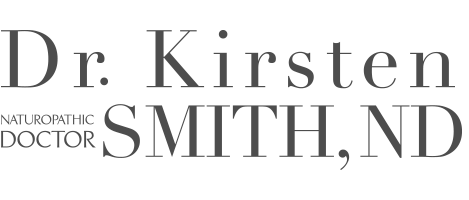Did you know that bio-identical/body identical progesterone is a star performer in managing perimenopause symptoms?
Bio-identical progesterone can also be used to treat conditions such as PCOS, PMDD, migraines, endometriosis and adenomyosis.
Semantics matter:
When we use the word, “progesterone” we are referring to oral micronized progesterone which requires a naturopathic doctor, medical doctor, or nurse practitioner’s prescription. In Canada and the US, the brand name is PrometriumⓇ. Progesterone can also be prescribed as a cream, vaginal suppository or even injection, but here we are referring to oral progesterone.
Progestogen: refers to any progesterone-type product.
Progesterone: refers specifically to bio-identical micronized progesterone.
Progestins: refers to “synthetic”, non bio-identical types such as levonorgestrel, drospirenone, norethisterone. Progestins are in hormonal IUD’s (ie. Mirena) and birth control pills.
Don’t lump progestogens together because they have different side effects and risk profiles. For example, if you experienced weight gain, anxiety or any other side effect from the pill or IUD, it does NOT mean you will have the same experience on progesterone.
It’s important to learn the difference between bio-identical progesterone and progestins, so that you can make the most informed decision for your health.
Let’s compare Progesterone and Progestin:
Progesterone
- Stimulates hair growth
- Reduces androgen symptoms (acne, unwanted hair growth/hirsutism)
- Reduces anxiety Improves sleep
- May reduce risk of breast cancer
Progestin
- Can cause hair loss
- Can cause androgenic symptoms
- Can cause anxiety
- Can cause depression
- May increase the risk of breast cancer
Using Progesterone in Perimenopause
Progesterone is VERY helpful to the majority of women during the perimenopause (the 10 years or so before menopause) phase of life because in the body, progesterone levels get lower and lower and never return.
Progesterone improves sleep, mood, energy, metabolism and decreases hot flashes and sweats… It is an absolute game-changer!
Using Progesterone in Menopause
The old school understanding is that the only role progesterone plays is protecting our uterine lining, but in reality, it does a lot more than that. It also helps us sleep well, reduces anxiety, strengthens bones, protects breast tissues and can reduce hot flashes and night sweats.
Can progesterone help with migraines, PMS, heavy periods, adenomyosis, endometriosis, PMDD and PCOS?
In one word, yes. It can be very helpful. However, at this point in time, progesterone is only approved for MHT (menopausal hormone therapy, formerly known as hormone replacement therapy) so you may have to really advocate for yourself to get it.
Note that progesterone is not as strong as a progestin, so sometimes a progestin is still required for some of these scenarios; there is definitely a time and place for using a progestin, especially if birth control is also wanted.
For you heavy bleeders out there, take this with you to your doctor’s appointment to help you advocate for a trial of progesterone.
Yours in health,
Dr. Kirsten 🦋
Women’s Health Naturopathic Doctor
Bonus fun fact: one of the top researchers in the world on this topic (if not the top researcher in the world) is Canadian endocrinologist Dr. Jerrilynn Prior and for more information you can visit her website at https://www.cemcor.ubc.ca/



